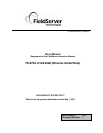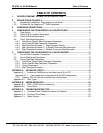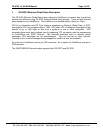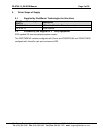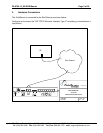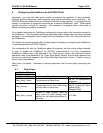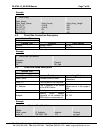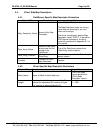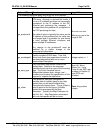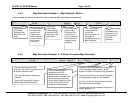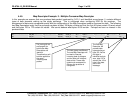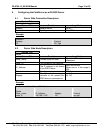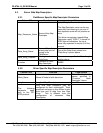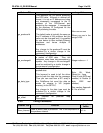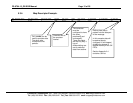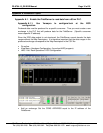
FS-8704-12_GE-EGD Manual Page 6 of 26
FieldServer Technologies 1991 Tarob Court Milpitas, California 95035 USA Web:www.fieldserver.com
Tel: (408) 262-2299 Fax: (408) 262-9042 Toll_Free: 888-509-1970 email: support@fieldserver.com
4. Configuring the FieldServer as a GE-EGD Client
Historically, one uses the client-server model to describe the operation of most protocols.
Recently producer-consumer model protocols have started to become more numerous. The
GE-EGD (Ethernet Global Data) is a producer-consumer model protocol. In equating the two
models it is important to regard the consumer as a passive (FieldServer) client. Other clients
typically are active and poll for new data. The consumer is a passive client in that waits to
digest new data generated by a producer.
For a detailed discussion on FieldServer configuration, please refer to the instruction manual for
the FieldServer. The information that follows describes how to expand upon the factory defaults
provided in the configuration files included with the FieldServer (See “.csv” files provided with
the FieldServer).
This section documents and describes the parameters necessary for configuring the FieldServer
to communicate with a GE-EGD Producer.
The configuration file tells the FieldServer about its interfaces, and the routing of data required.
In order to enable the FieldServer for GE-EGD communications, the driver independent
FieldServer buffers need to be declared in the “Data Arrays” section, the destination device
addresses need to be declared in the “Client Side Nodes” section, and the data required from
the servers needs to be mapped in the “Client Side Map Descriptors” section. Details on how to
do this can be found below.
Note that in the tables, * indicates an optional parameter, with the bold legal value being the
default.
4.1. Data Arrays
Section Title
Data_Arrays
Column Title Function Legal Values
Data_Array_Name Provide name for Data Array
Up to 15 alphanumeric
characters
Data_Format
Provide data format. Each Data Array
can only take on one format.
FLOAT, BIT, UInt16,
SInt16, Packed_Bit, Byte,
Packed_Byte,
Swapped_Byte
Data_Array_Length
Number of Data Objects. Must be
larger than the data storage area
required for the data being placed in
this array.
1-10,000



